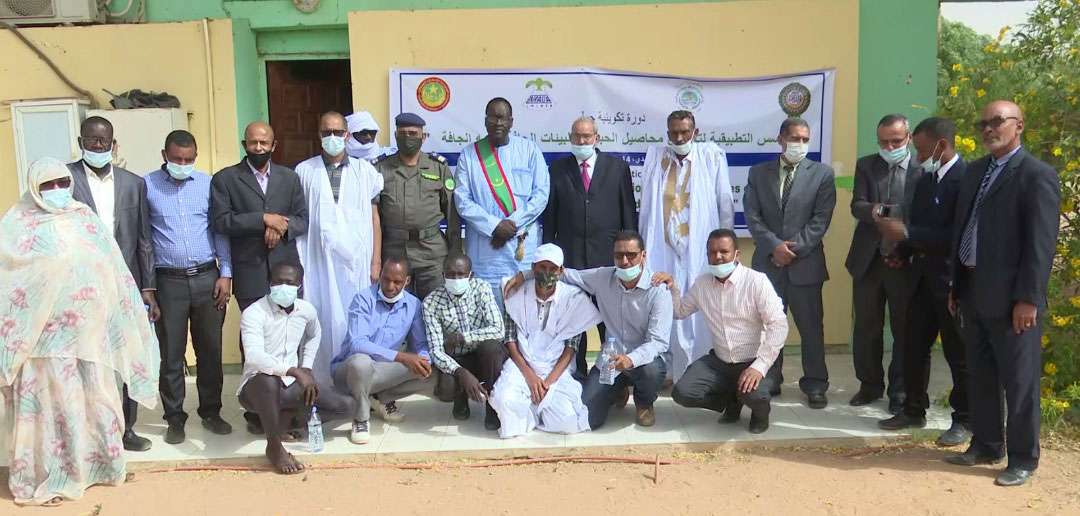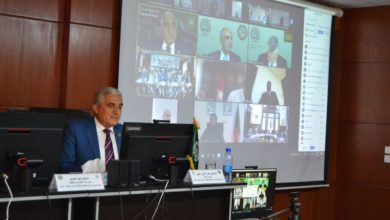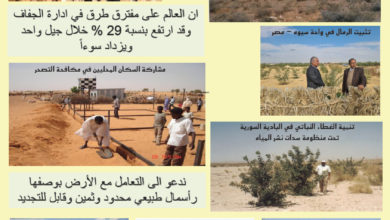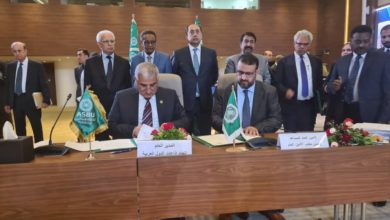ACSAD/ A Training Course in Mauritania
The Arab Center for the Studies of Arid Zones and Drylands (ACSAD) held a training course in Mauritania entitled “The Practical Bases to improving cereal crops in the Arid and Semi-arid Zones.” Under the patronage of the Mauritanian Minister of Agriculture and Rural Development, Mr. Edy Weld Al-Zain, in the presence of Mr. Ahmadna Weld Sayed Aab, the governor of Kurkul State, and the governor of Kayhidi Province, Mr. Labatt Weld Al-Mukhtar; in cooperating with the National Center for Agriculture Research and Development.
In a speech delivered by the head of the Cereal Breeding Program in ACSAD Organization, Dr. Hossam Farag, on behalf of the Director-General of ACSAD; His Excellency, Dr. Nasr Edin Obaid, stressed the importance of the training course’s events that included an elite group of experts from the Ministry of Rural Development in the sisterly Mauritanian Islamic Republic and other joint Arab action organizations interested in this course. He indicated that this training course aimed in particular to improve and develop the cereal crops and to support Mauritania’s policy in enhancing food security, working on reaching the sustainment from strategic crops as well as wheat and barley, and disseminating the applications of the conservation agriculture system for what it had of benefits in reducing the production costs and raising the return from the unit area. He praised the efforts exerted by participants in selecting and adopting 40 genotypes from wheat and barley, 16 varieties of bread wheat, ten varieties of Durum, and 14 varieties of barley) that were improved and originated by the Cereal Program in the Arab Center (ACSAD), which would pay off and achieve the desired goals.
The Director-General of ACSAD clarified the possibility of expanding the new varieties cultivation of wheat and barley in the lands recently reclaimed and applying the conservation agriculture system that is distinguished with low costs and high returns. ACSAD would work with the Ministry of Rural Development through modern technology transferring and joint technical action to reach the threshold of wheat and other crops’ self-sufficiency.
His excellency, the Director-General noted that since the establishment of ACSAD in 1968, believing it in the importance of the joint Arab action in promoting agriculture in the Arab countries, supporting their agricultural institutions, and upgrading their performance in proportion to reality and what it imposes of challenges; to Arab people’s aspirations in implementing many of scientific activities of a field research nature, then employing its results in developmental projects in agricultural lands which produced great productivity represented in adopting 77 superior varieties of wheat and barley in different Arab countries contributed in improving the agricultural production, narrowing the food gap, and improving the reality of Arab food security. In cooperation with the Ministry of Rural Development, ACSAD would hold important training courses in wheat and barley cultivation and production and implement the requisite development projects to improve Mauritania’s agriculture sector.
Dr. Obaid confirmed that ACSAD, as an ancient Arab house of expertise and incubator for all Arab researchers and scientists on the Arab world level, is for implementing the agricultural research and applying its results in the Arab world in the areas of disseminating ACSAD’s improved varieties from crops of wheat, barley, sorghum, millet, and chickpeas. And water resources development and modalities for the rationalization of their uses, fruitful trees development, plant protection from agricultural pests, palm tree development, pasture restoration, and combat desertification, livestock development, the preservation of biodiversity, agricultural systems development, in addition to training the Arab cadres, implementing the training courses, and issuing the technical and scientifical references.




